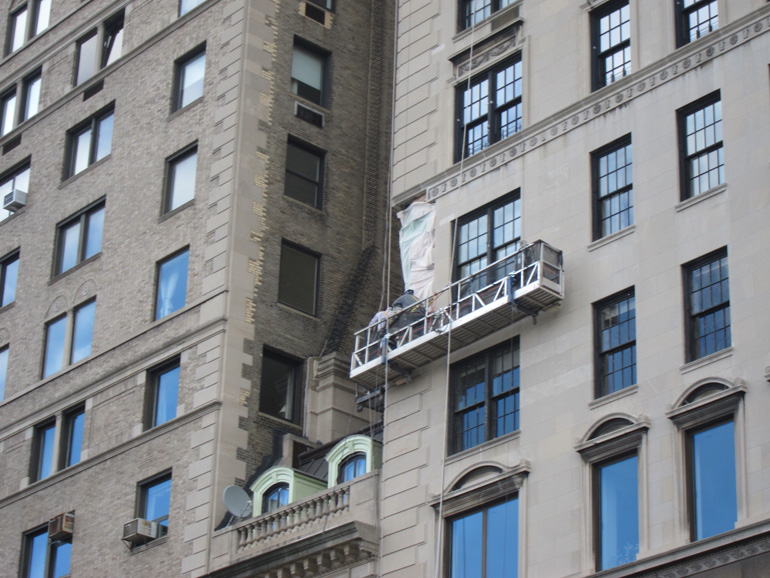Gotham Diary:
Closeted
15 October 2012
Having spent the weekend taking things out of closets and putting them in, I wonder how long it will be take for the word “closeted” — assuming that there’s any use for it at all — to become a dead metaphor, a turn of phrase whose underlying image no longer comes to mind. I’m not a scholar on the point; I don’t know anything particular about how the word came to be used to describe a sexual preference hidden from the world and possibly from the hider. But it seems to me that actual closets are not what they used to be. They are less like attics — those roomy but airless places in which discards become secrets — and more like carry-on luggage, packed as lightly but tightly as possible for the demands of unforeseen circumstances.
Closets can be a terrible embodiment of the saying, “out of sight, out of mind.” Put something in a closet and — forget that it exists! Until, that is, something presses you to find it, and you can’t think where to begin. You can’t even remember if you still have it, whatever it is.
Another closet curse: “This may come in handy some day.” The only things that come in handy some day are the ones that don’t prompt the question. I’ve only read the Introduction, but I’m already wondering if Project Management for Dummies will ever come in handy.
***
While toiling away yesterday, I listened to Juliet Stevenson’s reading of Mary Elizabeth Braddon’s Victorian sensation novel, Lady Audley’s Secret. I read the novel ten years or so ago, long enough to forget all but the broadest plot points — actually, all that I remembered for certain was that the very pretty Lady Audley is also very wicked. So I enjoyed the sensation quite as much as if I hadn’t read it at all. The quality of the novel itself didn’t much matter, though, because Stevenson’s reading, a three-ring circus of accents and impersonations, completely upstaged it. Juliet Stevenson is one of my favorite actresses, but also one of the most highly seasoned: the roles she plays are almost without exception (I can’t think of any exceptions) keen, sceptical women who don’t suffer fools gladly, even when, like her immortal Mrs Elton, they’re the only fools in the room. In the reading, however, this seasoning dissipated altogether. I forgot that “Juliet Stevenson” was reading. Her impersonations of Sir Michael Audley, the ageing baronet who has married the lovely young woman of unknown provenance, and his nephew, Robert Audley, were consummate in that they made me forget that a woman was doing the talking. (Her rendition of Luke Marks’s deathbed confession was so hearty and vernacular that it put the other characters completely out of mind, just as the confession itself retells key points of the plot.) If Lady Audley’s Secret were a greater book — on a par with Jane Austen or George Eliot — there might have been an unseemliness about the virtuosity of the reading, but all I could think of was how great it would be if Stevenson tackled Wilkie Collins. I lost myself in the feast of storytelling, and I can’t recommend the recording highly enough.
***
I don’t mean to toot my own horn, but, reading Zachary Wolfe’s report of last week’s Orpheus concert, I couldn’t help thinking how wrong-headed it was, from start to finish, especially in comparison with my own. Going on at great length, but without saying anything favorable or illuminating, about the new piece, Earth Echoes, was almost as fatuous as not pronouncing a word of judgment about the performance of Beethoven’s Fifth.

